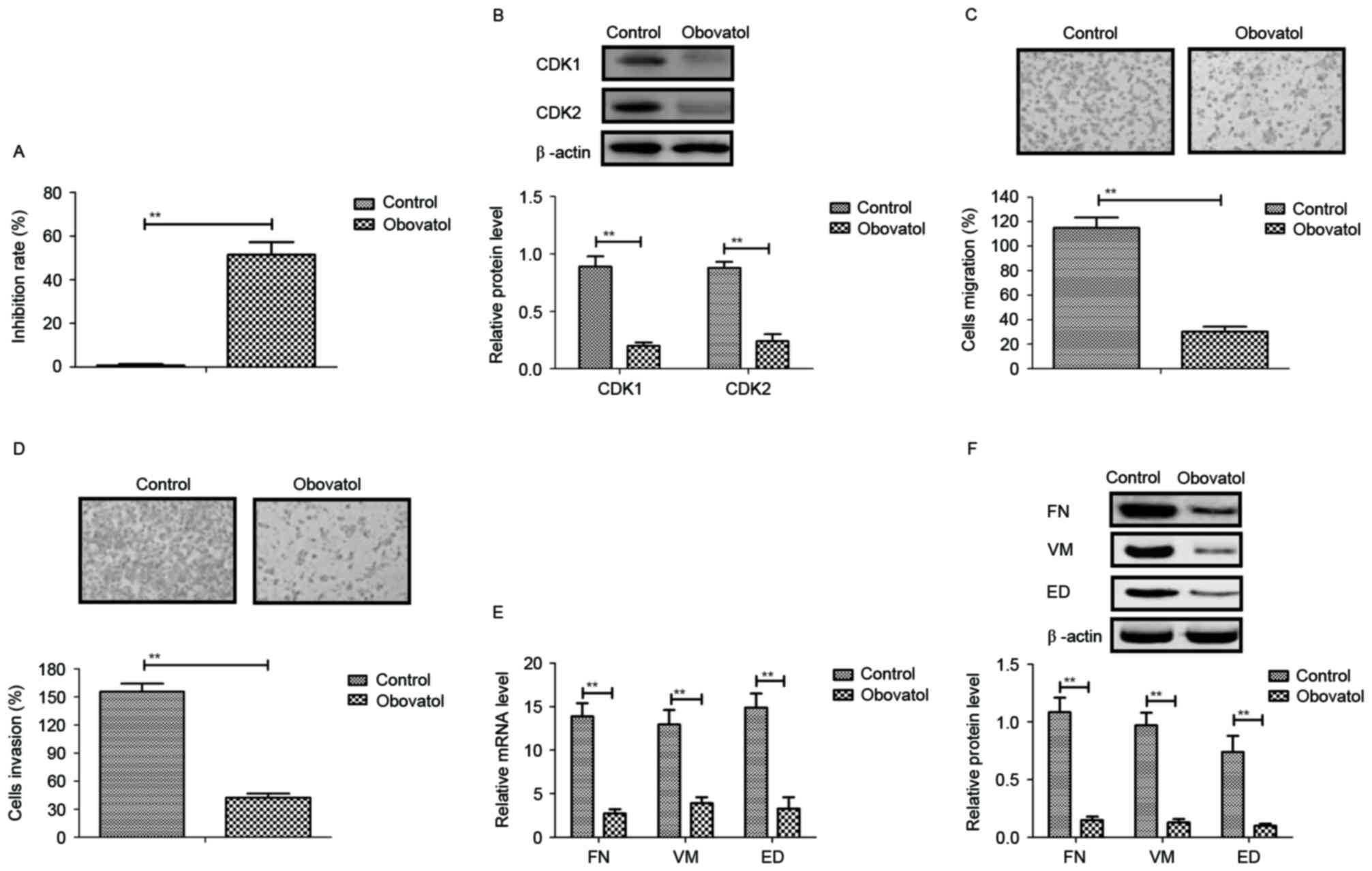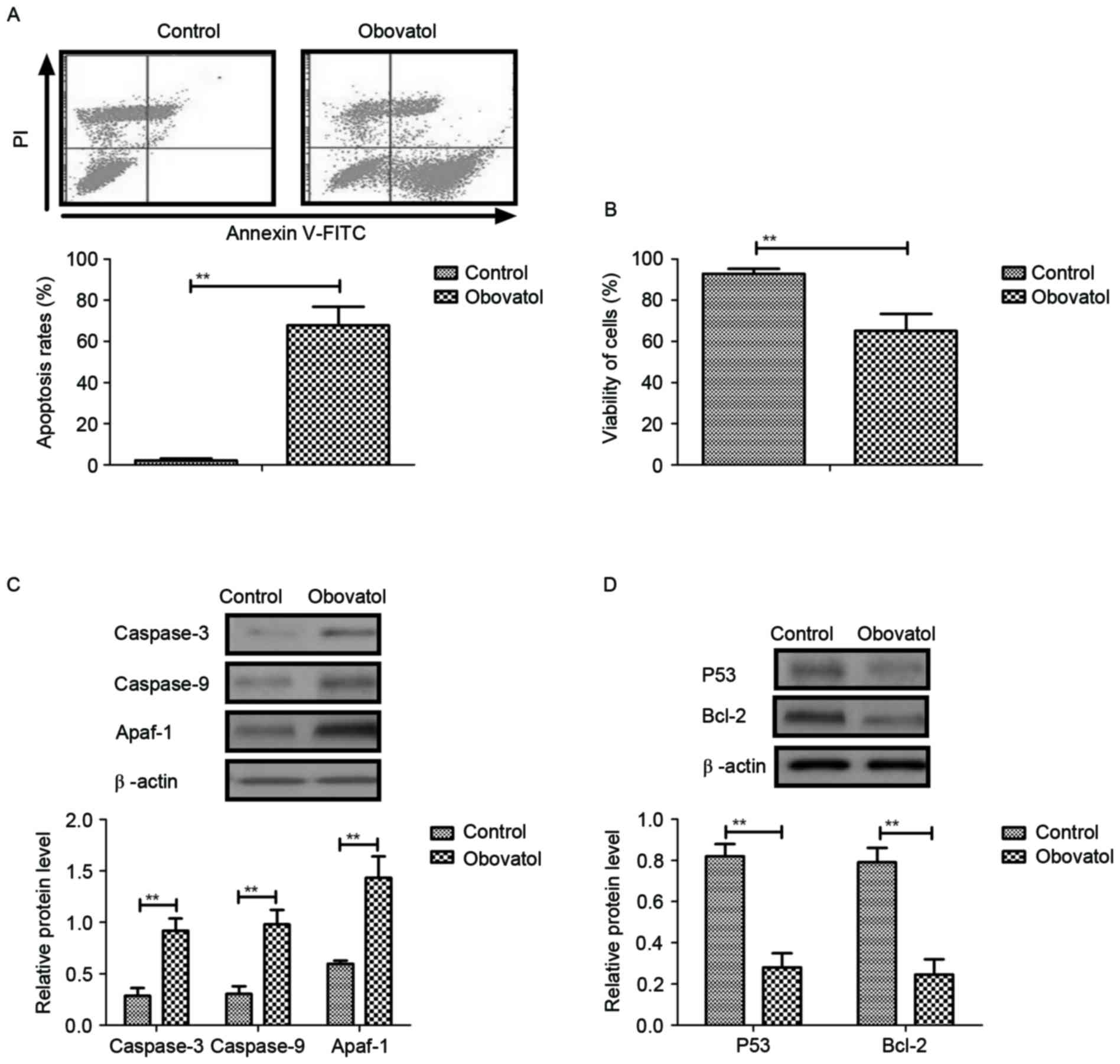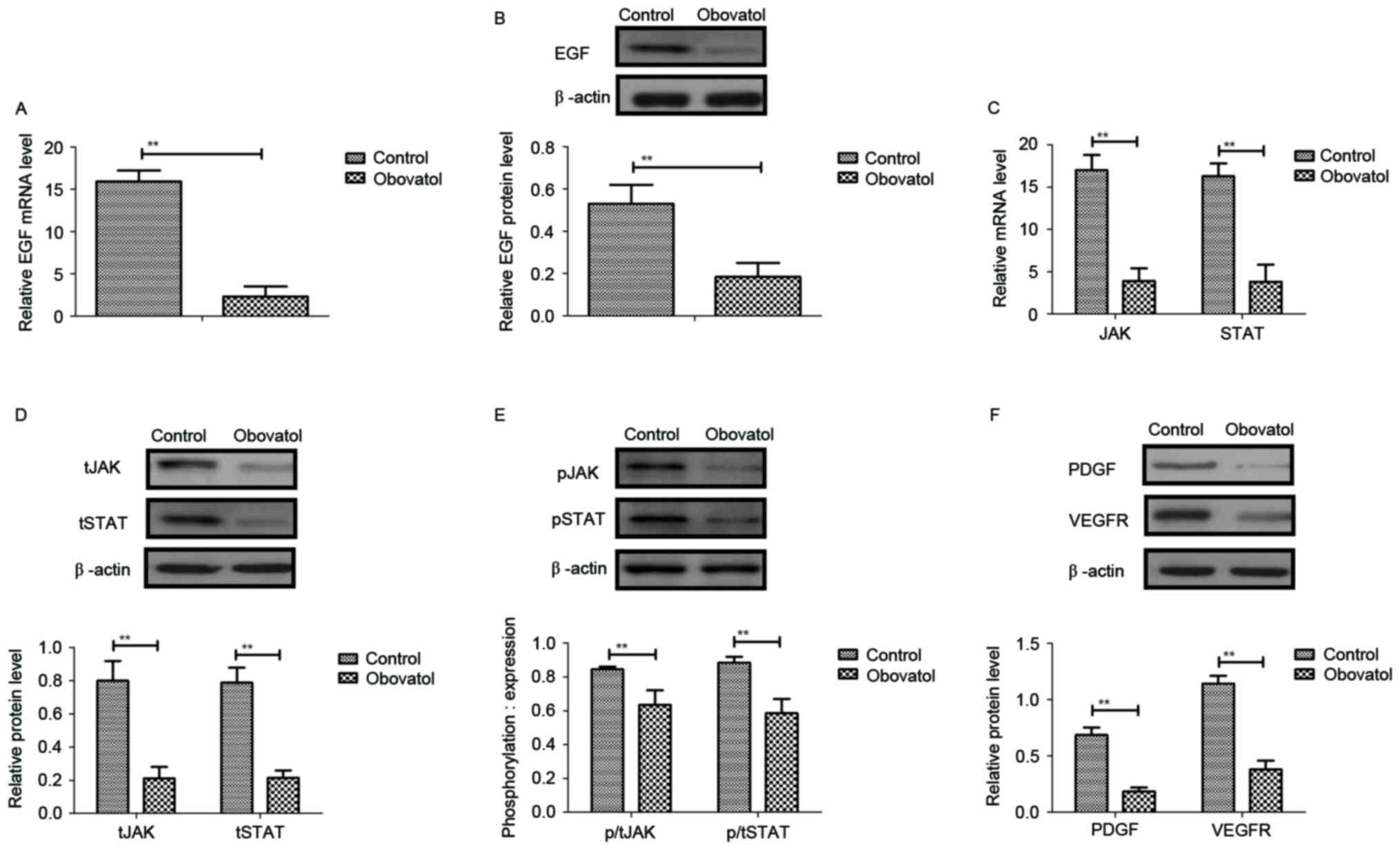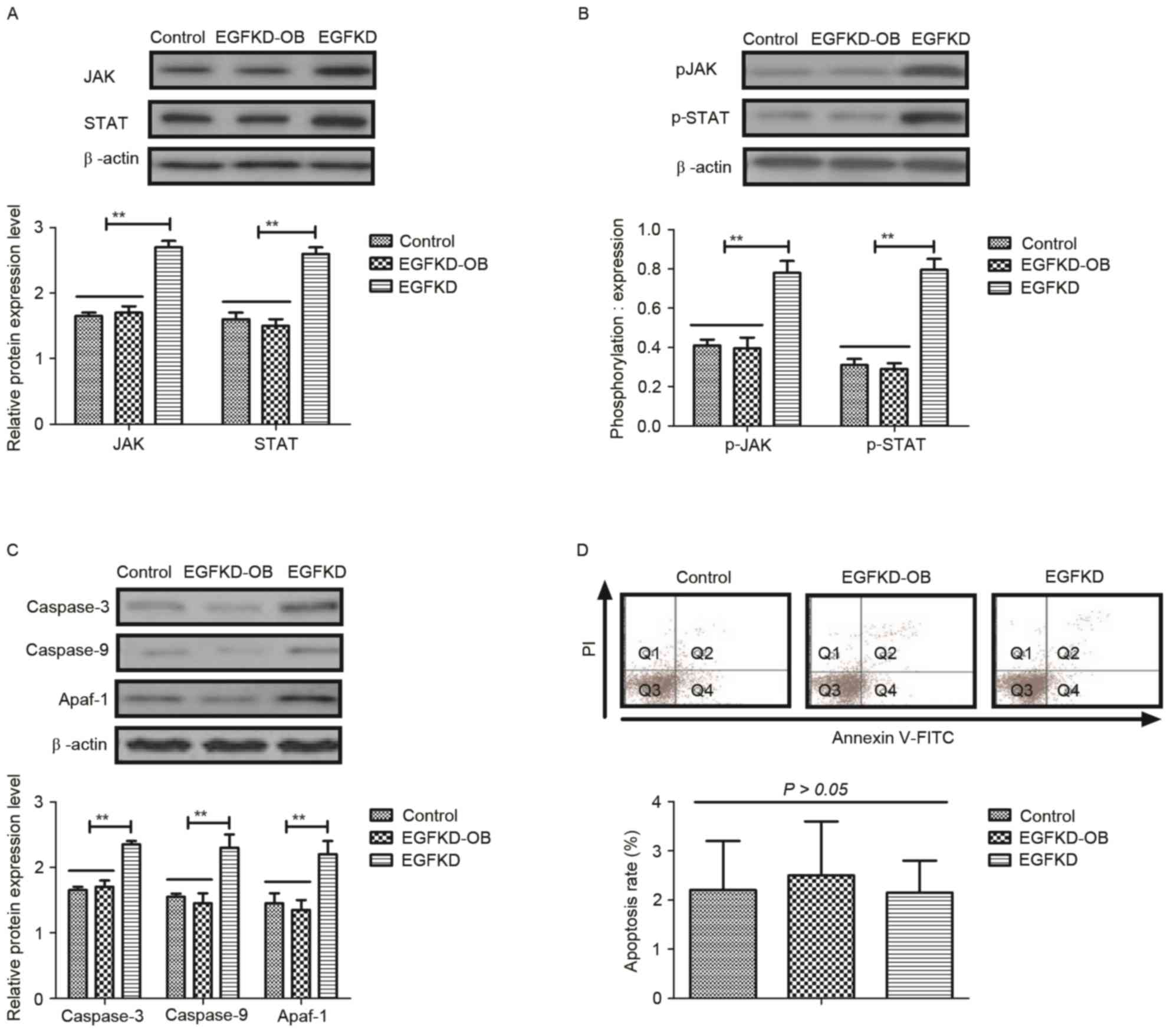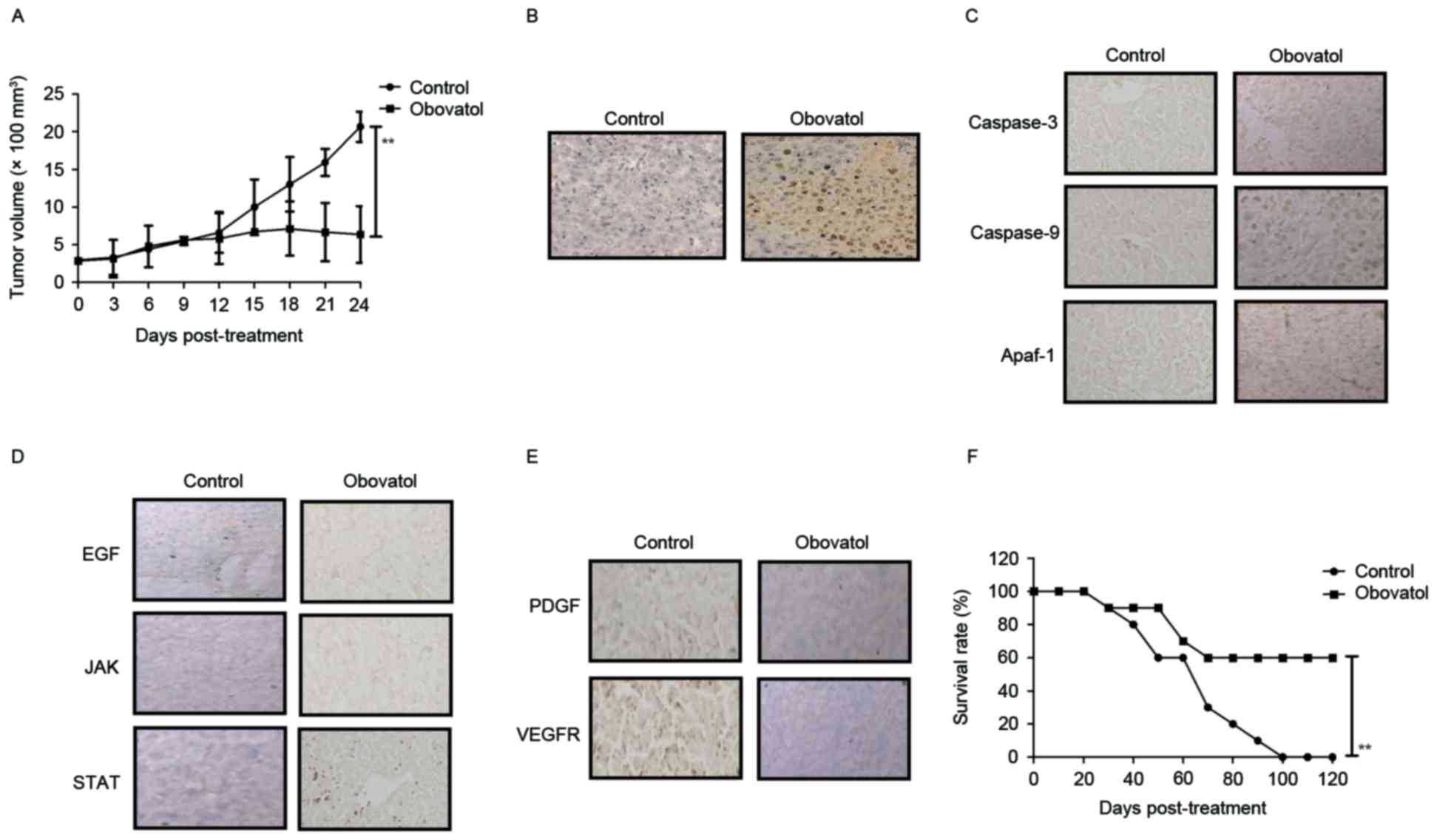|
1
|
Dik EA, Willems SM, Ipenburg NA, Rosenberg
AJ, Van Cann EM and van Es RJ: Watchful waiting of the neck in
early stage oral cancer is unfavourable for patients with occult
nodal disease. Int J Oral Maxillofac Surg. 45:945–950. 2016.
View Article : Google Scholar : PubMed/NCBI
|
|
2
|
Chen G, Cai X, Ren JG, Jia J and Zhao YF:
Unexpected development of tongue squamous cell carcinoma after
sclerotherapy for the venous malformation: A unique case report and
literature review. Diagn Pathol. 8:1822013. View Article : Google Scholar : PubMed/NCBI
|
|
3
|
Kradin RL, Sheldon TA, Nielsen P, Selig M
and Hunt J: Malacoplakia of the tongue complicating the site of
irradiation for squamous cell carcinoma with review of the
literature. Ann Diagn Pathol. 16:214–218. 2012. View Article : Google Scholar : PubMed/NCBI
|
|
4
|
Murphy J, Berman DR, Edwards SP,
Prisciandaro J, Eisbruch A and Ward BB: Squamous cell carcinoma of
the tongue during pregnancy: A case report and review of the
literature. J Oral Maxillofac Surg. 74:2557–2566. 2016. View Article : Google Scholar : PubMed/NCBI
|
|
5
|
Martínez C, Hernández M, Martínez B and
Adorno D: Frequency of oral squamous cell carcinoma and oral
epithelial dysplasia in oral and oropharyngeal mucosa in Chile. Rev
Med Chil. 144:169–174. 2016.(In Spanish). View Article : Google Scholar : PubMed/NCBI
|
|
6
|
Shrestha A, Marla V, Shrestha S and
Agrawal D: Awareness of undergraduate dental and medical students
towards oral cancer. J Cancer Educ. 32:778–783. 2017. View Article : Google Scholar : PubMed/NCBI
|
|
7
|
Lim Y, Kwon JS, Kim DW, Lee SH, Park RK,
Lee JJ, Hong JT, Yoo HS, Kwon BM and Yun YP: Obovatol from Magnolia
obovata inhibits vascular smooth muscle cell proliferation and
intimal hyperplasia by inducing p21Cip1. Atherosclerosis.
210:372–380. 2010. View Article : Google Scholar : PubMed/NCBI
|
|
8
|
Choi DY, Lee YJ, Lee SY, Lee YM, Lee HH,
Choi IS, Oh KW, Han SB, Nam SY and Hong JT: Attenuation of
scopolamine-induced cognitive dysfunction by obovatol. Arch Pharm
Res. 35:1279–1286. 2012. View Article : Google Scholar : PubMed/NCBI
|
|
9
|
Lee SY, Yuk DY, Song HS, Yoon DY, Jung JK,
Moon DC, Lee BS and Hong JT: Growth inhibitory effects of obovatol
through induction of apoptotic cell death in prostate and colon
cancer by blocking of NF-kappaB. Eur J Pharmacol. 582:17–25. 2008.
View Article : Google Scholar : PubMed/NCBI
|
|
10
|
Lee SK, Kim HN, Kang YR, Lee CW, Kim HM,
Han DC, Shin J, Bae K and Kwon BM: Obovatol inhibits colorectal
cancer growth by inhibiting tumor cell proliferation and inducing
apoptosis. Bioorg Med Chem. 16:8397–8402. 2008. View Article : Google Scholar : PubMed/NCBI
|
|
11
|
Kim H, Shin EA, Kim CG, Lee DY, Kim B,
Baek NI and Kim SH: Obovatol induces apoptosis in non-small cell
lung cancer cells via C/EBP homologous protein activation.
Phytother Res. 30:1841–1847. 2016. View
Article : Google Scholar : PubMed/NCBI
|
|
12
|
Livak KJ and Schmittgen TD: Analysis of
relative gene expression data using real-time quantitative PCR and
the 2(-Delta Delta C(T)) method. Methods. 25:402–408. 2001.
View Article : Google Scholar : PubMed/NCBI
|
|
13
|
Bai FL, Yu YH, Tian H, Ren GP, Wang H,
Zhou B, Han XH, Yu QZ and Li DS: Genetically engineered Newcastle
disease virus expressing interleukin-2 and TNF-related
apoptosis-inducing ligand for cancer therapy. Cancer Biol Ther.
15:1226–1238. 2014. View Article : Google Scholar : PubMed/NCBI
|
|
14
|
Xiao YS, Zhou J, Fan J, Sun QM, Zhao Y,
Sun RX, Liu YK and Tang ZY: Interferon-alpha upregulates thymidine
phosphorylase expression via JAK-STAT transcriptional activation
and mRNA stabilization in human hepatocellular carcinoma SMMC-7721
cells. Zhonghua Zhong Liu Za Zhi. 30:444–447. 2008.(In Chinese).
PubMed/NCBI
|
|
15
|
Saxena NK, Sharma D, Ding X, Lin S, Marra
F, Merlin D and Anania FA: Concomitant activation of the JAK/STAT,
PI3K/AKT, and ERK signaling is involved in leptin-mediated
promotion of invasion and migration of hepatocellular carcinoma
cells. Cancer Res. 67:2497–2507. 2007. View Article : Google Scholar : PubMed/NCBI
|
|
16
|
Kalinowski FC, Giles KM, Candy PA, Ali A,
Ganda C, Epis MR, Webster RJ and Leedman PJ: Regulation of
epidermal growth factor receptor signaling and erlotinib
sensitivity in head and neck cancer cells by miR-7. PloS one.
7:e470672012. View Article : Google Scholar : PubMed/NCBI
|
|
17
|
Ng JH, Iyer NG, Tan MH and Edgren G:
Changing epidemiology of oral squamous cell carcinoma of the
tongue: A global study. Head Neck. 39:297–304. 2017. View Article : Google Scholar : PubMed/NCBI
|
|
18
|
Wong WM, Parvathaneni U, Jewell PD,
Martins RG, Futran ND, Laramore GE and Liao JJ: Squamous cell
carcinoma of the oral tongue in a patient with Fanconi anemia
treated with radiotherapy and concurrent cetuximab: A case report
and review of the literature. Head Neck. 35:E292–E298.
2013.PubMed/NCBI
|
|
19
|
Iyengar NM, Ghossein RA, Morris LG, Zhou
XK, Kochhar A, Morris PG, Pfister DG, Patel SG, Boyle JO, Hudis CA
and Dannenberg AJ: White adipose tissue inflammation and
cancer-specific survival in patients with squamous cell carcinoma
of the oral tongue. Cancer. 122:3794–3802. 2016. View Article : Google Scholar : PubMed/NCBI
|
|
20
|
Goepfert RP, Kezirian EJ and Wang SJ: Oral
tongue squamous cell carcinoma in young women: A matched
comparison-do outcomes justify treatment intensity? ISRN
Otolaryngology. 2014:5293952014. View Article : Google Scholar : PubMed/NCBI
|
|
21
|
Seppälä M, Pohjola K, Laranne J,
Rautiainen M, Huhtala H, Renkonen R, Lemström K, Paavonen T and
Toppila-Salmi S: High relative density of lymphatic vessels
predicts poor survival in tongue squamous cell carcinoma. Eur Arch
Otorhinolaryngol. 273:4515–4524. 2016. View Article : Google Scholar : PubMed/NCBI
|
|
22
|
Theocharis S, Giaginis C, Dana E, Thymara
I, Rodriguez J, Patsouris E and Klijanienko J: Phosphorylated
epidermal growth factor receptor expression is associated with
clinicopathologic parameters and patient survival in mobile tongue
squamous cell carcinoma. J Oral Maxillofac Surg. 75:632–640. 2017.
View Article : Google Scholar : PubMed/NCBI
|
|
23
|
Lee SY, Cho JS, Yuk DY, Moon DC, Jung JK,
Yoo HS, Lee YM, Han SB, Oh KW and Hong JT: Obovatol enhances
docetaxel-induced prostate and colon cancer cell death through
inactivation of nuclear transcription factor-kappaB. J Pharmacol
Sci. 111:124–136. 2009. View Article : Google Scholar : PubMed/NCBI
|
|
24
|
Arora S, Bhardwaj A, Srivastava SK, Singh
S, McClellan S, Wang B and Singh AP: Honokiol arrests cell cycle,
induces apoptosis, and potentiates the cytotoxic effect of
gemcitabine in human pancreatic cancer cells. PloS one.
6:e215732011. View Article : Google Scholar : PubMed/NCBI
|
|
25
|
Gotz R and Sendtner M: Cooperation of
tyrosine kinase receptor TrkB and epidermal growth factor receptor
signaling enhances migration and dispersal of lung tumor cells.
PloS One. 9:e1009442014. View Article : Google Scholar : PubMed/NCBI
|
|
26
|
Andersson N, Anttonen M, Färkkilä A,
Pihlajoki M, Bützow R, Unkila-Kallio L and Heikinheimo M:
Sensitivity of human granulosa cell tumor cells to epidermal growth
factor receptor inhibition. J Mol Endocrinol. 52:223–234. 2014.
View Article : Google Scholar : PubMed/NCBI
|
|
27
|
Al-Hazzaa A, Bowen ID, Randerson P and
Birchall MA: The effect of ZD1839 (Iressa), an epidermal growth
factor receptor tyrosine kinase inhibitor, in combination with
cisplatin, on apoptosis in SCC-15 cells. Cell Prolif. 38:77–86.
2005. View Article : Google Scholar : PubMed/NCBI
|
|
28
|
Chapman MS, Wu L, Amatucci A, Ho SN and
Michaelson JS: TWEAK signals through JAK-STAT to induce tumor cell
apoptosis. Cytokine. 61:210–217. 2013. View Article : Google Scholar : PubMed/NCBI
|
|
29
|
Hernandez JM, Elahi A, Clark W, Humphries
LA, Wang J, Achille A, Seto E and Shibata D: The tumor suppressive
effects of HPP1 are mediated through JAK-STAT-interferon signaling
pathways. DNA Cell Biol. 34:541–549. 2015. View Article : Google Scholar : PubMed/NCBI
|
|
30
|
Fourati A, El May MV, Ben Abdallah M,
Gamoudi A, Mokni N, Goucha A, Boussen H, Ladgham A and El May A:
Prognostic evaluation of p53, heat shock protein 70, Ki67, and CD34
expression in cancer of the tongue in Tunisia. J Otolaryngol Head
Neck Surg. 38:191–196. 2009.PubMed/NCBI
|
|
31
|
Lin YT, Yang JS, Lin HJ, Tan TW, Tang NY,
Chaing JH, Chang YH, Lu HF and Chung JG: Baicalein induces
apoptosis in SCC-4 human tongue cancer cells via a Ca2+-dependent
mitochondrial pathway. In Vivo. 21:1053–1058. 2007.PubMed/NCBI
|















